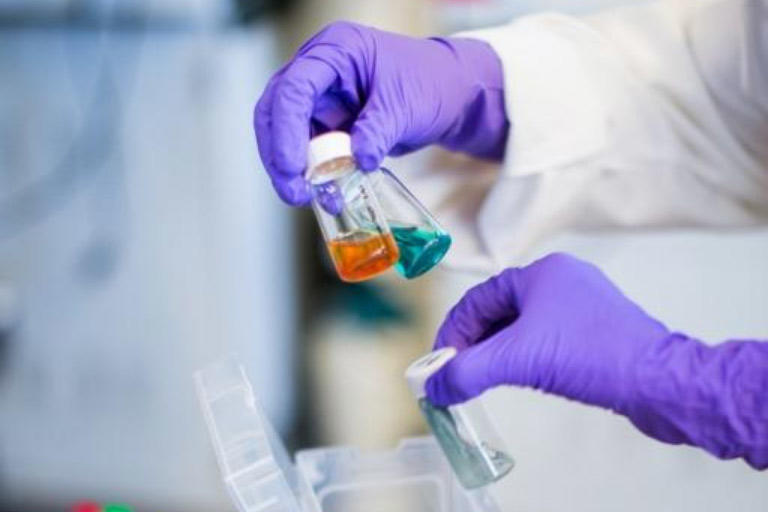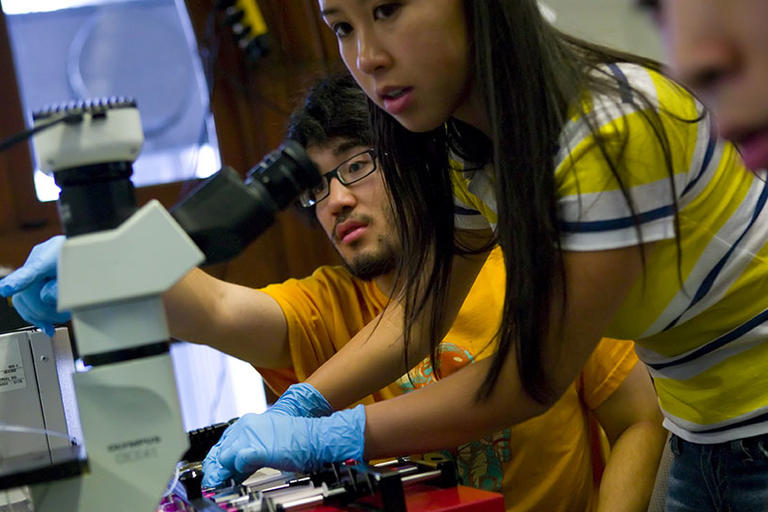About the Incubator Lab
Mission
The CBE Innovation Incubator is a laboratory for undergraduates to explore student-directed chemical engineering projects. The Incubator encourages student entrepreneurship and creativity through an open proposal process, while providing supervision and consultancy in safety, technical aspects, and commercialization. The CBE Department affirms the importance of space for “tinkering”, hands-on applications of chemical engineering theory, and the entrepreneurial spirit of our talented students.
Eligibility
Teams of up to five students may apply for access to the Incubator. At least 50% of the students on each team must be chemical engineering undergraduate majors. Chemical engineering graduate students or University of California undergraduates from other majors may participate as minority team members.
Supervision
The CBE Department provides two 50% GSIs per term (fall semester and spring semester) to oversee safe laboratory work. Student teams coordinate their work hours with the GSI’s availability, and students may only work in the laboratory (including team meetings or other “dry” work) when the GSI is present. Laboratory time should normally be within standard work hours to ensure building access.
Student Requirements
Safety Training
All team members must complete College of Chemistry laboratory safety training online through the UC Learning Center and deliver the printed completion page of EHS 101 to the Director of Undergraduate Education.
Standard Operating Procedures
Student teams must maintain current SOPs for experiments and equipment use in the laboratory, in accordance with College of Chemistry EHSS policy.
Faculty Sponsor
A faculty sponsor is required for advising on technical issues and sponsored projects applications. Any faculty member within the Chemical and Biomolecular Engineering Department, including ladder-rank faculty, professors of the graduate school, or adjuncts and lecturers are eligible. If student teams seek external funding through the Sponsored Projects Office, they need to select a faculty advisor with PI status.
Funding
Due to a generous gift from alumna Frances Arnold (PhD '79), teams may apply for up to $500 toward project costs for incubator lab work, such as consumable chemicals and equipment.
Student teams need to raise sufficient funds to cover project costs, from any sponsor. These funds are used to cover material and equipment costs per each group's needs.
Fundraising
Student teams need to raise sufficient funds to cover project initiation, usually at least $200, from any sponsor.
Proposal
Each student team is required to generate a 5-10 page proposal describing their project. Proposals are reviewed and selected by the Department Chair and Director of Undergraduate Education.
Presenting Results
Each group is required to present the outcomes of their project at the annual spring Saegebarth Research Fair in the College of Chemistry
Due Date
Applications are due in September for the current academic year.
Questions
If you have questions regarding the application or selection process, please direct them to Dr. Shannon Ciston at sciston@berkeley.edu.
Research in the Lab
Examples of Groups that have used the incubator lab
1. Biofuels group — refining waste cooking oil from Cal Dining into bio-diesel usable by campus shuttle services
2. Cosmetics group — find the right ratios of ingredients for powder-based foundation
3. Food science group — apply heat and acid precipitation methods to get a moringa protein isolate from moringa leaves.
4. Experimental battery group — create thermoelectrical generators to run a ChE car.
5. Hydrogen fuel cell group — how efficiently produce a hydrogen fuel cell to run a Ch/e car.
6. Internal combustion group — create fuel mixture that contain an 80/17/3 ratio of ethanol, castor oil, and acetone as the main source of energy for the internal combustion engine while the castor oil will serve as a necessary lubricant, and the acetone will help emulate the nitromethane in improving fuel performance.
and more....



